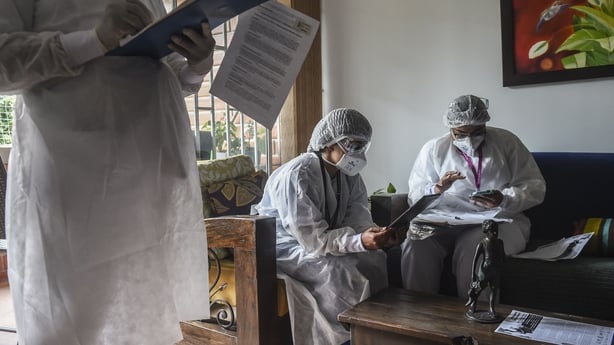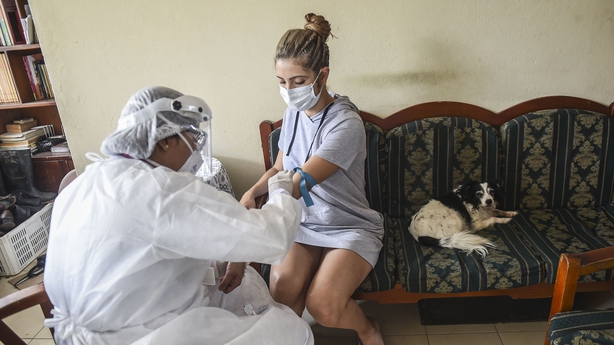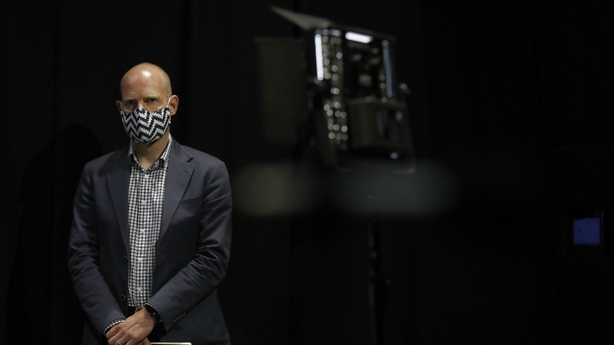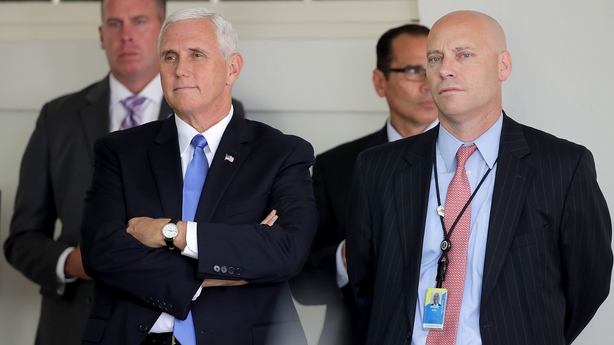Spanish Prime Minister Pedro Sanchez has announced a new state of emergency in an effort to curb soaring coronavirus infections, imposing local night-time curfews and banning travel between regions in certain cases.
The measures go into force from tonight and will require all regions except the Canary Islands to impose a night-time curfew and limit the number of people allowed to meet to six.
"We are living in an extreme situation ... it is the most serious health crisis in the last century," Mr Sanchez told a news conference following a cabinet meeting.
Spain imposed one of the toughest lockdowns early on in the pandemic and then relaxed curbs over the summer.
But like many other European countries it has seen a second wave hit in recent weeks, and now has one of the highest numbers of infections in western Europe.
Total cases rose to 1,046,132 on Friday, while the death toll is nearing 35,000.
The state of emergency will need parliamentary approval to last beyond 15 days. Mr Sanchez asked for parliament to approve its extension up to 9 May.
A growing number of regions had been calling on the government to implement the measure.
Catalonia was one of the first regions to use the new legislation to impose a curfew, which will take effect at 10pm. Establishments open to the public will have to close at 9pm.
The Madrid region had already limited the number of people who could meet inside homes to six, as well as banning the mixing of different households overnight.
A curfew was already in place in a number of cities across Spain to curb the spread of Covid-19.
The decree will serve as a legal framework to implement a new warning system of levels, similar to the ones already applied in countries such as Ireland, Germany and France.
Colombia becomes eighth country to pass one million Covid-19 cases
Colombia surpassed the benchmark of one million cases of Covid-19 registered in the country since the beginning of the pandemic, the health ministry announced.
The last 24 hours saw 8,769 new infections, bringing the total to 1,007,711 since the first case was detected on 6 March, the ministry said.
Deaths rose to 30,000 after authorities added 198 fatalities from the last ten days.

With 50 million people, Colombia is the eighth country to top a million infections, after the United States, India, Brazil, Russia, Argentina, Spain and France.
At an event in Chinchina, Caldas, President Ivan Duque stressed that Colombia has a relatively low death rate among Latin American countries on a per capita basis.
"We did much better than other countries. But I do not say this so that we feel proud, I say it because we must protect ourselves better," the conservative said.
According to the National Institute of Health, Colombia ranks tenth in the region with an average of 561 deaths per million inhabitants: almost half of Peru (1,016) and about a quarter less than Brazil (719).
Colombia went under a national lockdown on 25 March, then relaxed restrictions to shore up its collapsing economy.
Since 1 September, the country has been relying on individual responsibility and widespread use of masks in public places.

Mr Duque says he has allocated resources of "close to 11% of GDP", some €26bn, to deal with the crisis.
Unemployment in cities nonetheless climbed to an all-time high of 19.6% in August.
With 308,645 infections, the Colombian capital Bogota accounts for a third of the country's cases and is the city most affected by the virus.
However, in recent weeks the number of Covid-19 patients has soared in the department of Antioquia, with intensive care units at capacity.
Victoria delays removal of restrictions for hospitality sector in Melbourne
Meanwhile in Australia, the country's Covid-19 hotspot - Victoria state - has delayed the eagerly awaited removal of strict lockdown restrictions for cafes, restaurants and pubs in the capital Melbourne because of an outbreak in the northern suburbs.
The restrictions have kept most retail businesses in Melbourne providing online services only since early August and five million people living under stay-at-home orders were hoping for an announcement.
State premier Daniel Andrews said an outbreak in Melbourne's northern suburbs would likely delay the reopening of retail and hospitality businesses by a few days, as officials preferred to wait for hundreds of test results.

He planned to announce some restrictions would be lifted from mid-week. "If I could stand here today and make these announcements, I would," Mr Andrews said.
"There are 1,000 swabs, plus, in the laboratory and we do not have the results for those yet. Once we do get those results we will be in a better position, will have a clearer picture, to be able to make announcements."
In the previous 24 hours, the state found six new cases linked to the northern suburbs outbreak which has spread through 11 households, up from six on Tuesday.
Officials wanted to know whether all known infections and expected positive cases from the tests were linked, Mr Andrews said.
"We will get them today and tomorrow and hopefully we are able to make, not only announcements but to take the big steps safely around the middle of this week."
There were seven new Covid-19 cases in the state, extending the downward trend of the 14-day moving average of new cases to 4.6.
Mr Andrews had previously said the key metric had to be below five for the next band of restrictions to be lifted.
With 817 deaths, Victoria accounts for more than 90% of all lives lost to the coronavirus in Australia this year. The country has recorded nearly 27,500 infections, a fraction of those in some other countries.
Top aide to Pence tests positive for Covid-19
US Vice President Mike Pence's chief of staff has tested positive for Covid-19, a spokesman said, the latest in a list of figures connected to Donald Trump's administration to do so.
Marc Short began quarantine and was assisting in the contract tracing process, Pence spokesman Devin O'Malley said in a statement.
"Vice President Pence and Mrs Pence both tested negative for Covid-19 today, and remain in good health," he added.

Mr Pence, who has been campaigning ahead of the 3 November election, will maintain his current schedule in consultation with White House doctors, said the spokesman.
A surge in Covid-19 cases led to the United States reaching a record number of daily infections for a second day running yesterday, with nearly 89,000 new cases.
A list of people connected to the White House have contracted the virus, including President Trump, who was hospitalised before recovering.
Mr Trump has downplayed the seriousness of the virus, calling for businesses to reopen so the economy can recover.
Joe Biden, his Democratic opponent in the upcoming polls, has repeatedly criticised Mr Trump's handling of the health crisis.
The virus has claimed more than 224,000 American lives.
